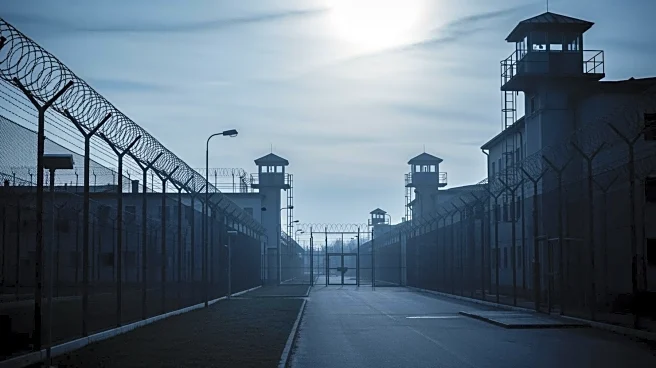What's Happening?
Germany has unveiled a new military service plan aimed at significantly boosting its troop numbers, with the goal of creating Europe's strongest conventional army. The plan, proposed by the country's coalition government, mandates all 18-year-old men to
complete a questionnaire assessing their suitability for military service. Starting in 2027, these individuals will undergo medical screenings to evaluate their fitness for service. While the questionnaire is mandatory for men, it remains voluntary for women. The plan does not reinstate compulsory military service, but concerns persist that this could change. Germany's Bundeswehr currently has approximately 182,000 troops, and the government aims to increase this number to 260,000 over the next decade, supported by 200,000 reservists. By 2029, Germany is expected to allocate 153 billion euros annually to defense, representing 3.5% of its GDP, the highest since reunification.
Why It's Important?
Germany's military expansion is a direct response to Russia's aggressive actions in Ukraine, which have heightened security concerns across Europe. The move is seen as a significant shift in Europe's military-political landscape, potentially altering traditional dynamics. Germany's increased defense spending and troop numbers could bolster NATO's collective security, but it also raises questions about the balance of military power within Europe. The plan has sparked debate among European leaders, with some expressing support for Germany's proactive stance, while others worry about the implications of such a military buildup. The initiative underscores the growing urgency among European nations to enhance their defense capabilities in light of perceived threats from Russia.
What's Next?
The draft bill for Germany's military service plan is scheduled for a parliamentary vote in December, with the possibility of being passed by the end of the year. However, it is expected to face opposition from political factions that view the plan as a step towards mandatory military service. The outcome of the vote will determine the future trajectory of Germany's defense strategy and its impact on European security. As Germany moves forward with its plans, other European countries may reassess their own military policies and spending, potentially leading to a broader shift in regional defense strategies.
Beyond the Headlines
Germany's military expansion plan raises ethical and cultural questions about the role of military service in society. The voluntary nature of the service, particularly for women, reflects ongoing debates about gender equality in the military. Additionally, the plan's focus on increasing troop numbers and defense spending highlights the broader geopolitical tensions in Europe, as countries navigate the challenges posed by Russia's actions. The long-term implications of Germany's military buildup could influence European defense policies and alliances, shaping the continent's security landscape for years to come.














